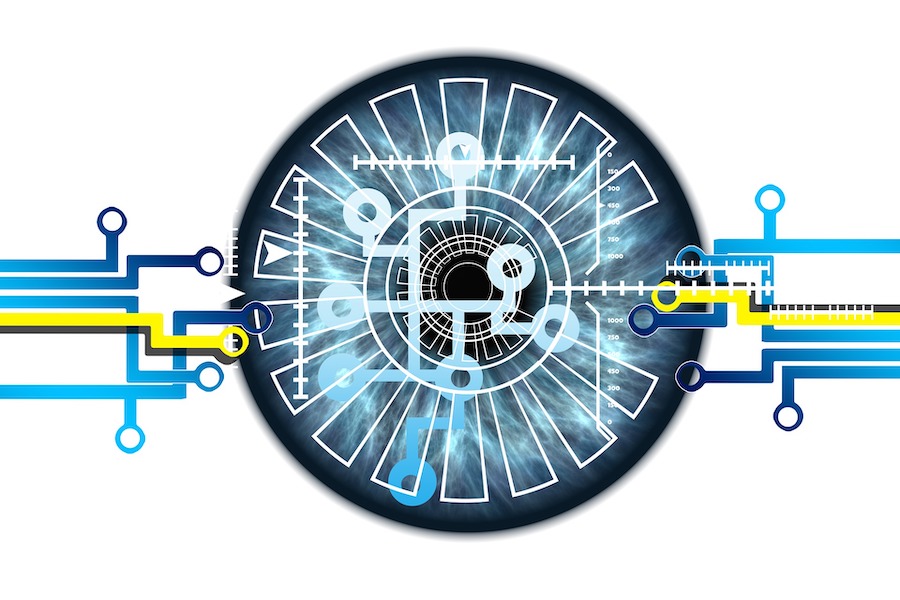Staying on top of new technologies is important for any hotel manager. As new technologies change guest habits, it’s important to remain competitive in the hotel landscape. Using new technologies in your hotel can help you and your staff save time, prevent mistakes and deliver a better guest experience overall.
Here are 8 new technologies on the market that you may want to consider incorporating into your hotel.
1. Keyless entry
Keyless entry customizes hotel access, allowing guests to use their phones to unlock their rooms via a mobile app. Gone are the days of losing key cards and having to check your pockets before you leave the room. Hotel chains like The Hilton are already moving towards keyless entry for their rooms.
Not only does keyless entry provide guests with easier access to their rooms, it also provides hotels with enhanced security. Room access is encrypted and registered to guests’ phone numbers so that it can’t be transferred to another mobile device. Furthermore, these technologies allow hotels to collect guests’ email addresses and develop stronger loyalty programs.
2. AI Texting
There has been a recent positive shift in the perception and use of Artificial Intelligence (AI) systems in homes and hotels. Amazon’s Alexa is a prime example of AI technology being incorporated into domestic life.
By incorporating AI texting into your hotel’s mobile app, you give guests the opportunity to clearly communicate their needs to your team, whether they want more pillows, a late check-out or room service. Incorporating AI concierges into your hotel’s mobile app will allow guests to register their needs in real-time without having to wait in line or call down to the lobby.
By allowing guests to communicate to an AI agent, hotels gain an opportunity to increase guest engagement and satisfaction. To learn more about AI texting, check out Ivy by our partners at Go Moment.
3. Smart Controls
Comfort should still be a number one priority at your hotel, but sometimes getting the right room temperature for your guests can be a near-impossible task. Smart controls put the guests in control of their thermostats, allowing them to choose the room temperature from their phones even when they’re not inside.
Similarly, smart lighting allows guest to dim or increase the lighting in their room automatically via a mobile app.
By providing customers with a means to control their own heat and lighting, hotels allow guests to create the perfect customized environment for their individual needs.
4. Expanded Entertainment Screens
It’s a BYOD (Bring Your Own Device) world, and many guests already have subscriptions to Netflix or other streaming services. By allowing guests to connect their streaming services to their room’s entertainment screens, hotels are encouraging customers to bring home comforts and conveniences directly into the hotel room.
Business travellers can also use the hotel entertainment system for video conferencing and virtual meetings.
Another technology to consider for guests’ entertainment needs are mirror TVs, which allow guests to watch TV from the bathroom, sauna, pools or gym on each room’s respective mirrors. MirrorView is already being used in many luxury hotels around the world.
5. Cloud-Based Tech
Using a cloud-based property management system (PMS) enables hotel staff to easily access data in real-time and from anywhere. Hotel staff can conveniently update guest profiles and pull up relevant details quickly to check if guests have room preferences, dietary restrictions, etc. Cloud-based systems increase staff performance and provide stronger security, as reported by Duetto in a recent study.
Property management systems can also be integrated with other add-ons like payment technologies and marketing automation to create a more powerful system.
6. Automated Revenue Management
Automation in revenue management is becoming the new standard that competitive hotels must use to keep up. Tools like Duetto’s ScoreBoard make revenue management much easier by automating many of the tasks and analysis that would normally take hours to manually process. Hotels will benefit from products with intuitive analytics that are designed to quickly integrate new data into their analysis alongside technological advancements and changes to buyer habits.
7. Virtual Reality Property Browsing
VR is here to stay. It has picked up momentum in the last few months, moving beyond the traditional gaming sphere and into new industries from therapy to real estate. Hotels can incorporate this technology into pre-arrival tactics by providing guests with a virtual tour of the hotel room and amenities before they arrive.
8. VR-Influenced Guest Profiles
Online travel agents (OTAs) don’t usually allow hotels to access guest data, so hotels are trying to hold on to customers by providing customized offers on their websites based on guests’ individual preferences. Incorporating these customized offers into the VR pre-arrival experience will allow guests to see how hotels can customize offers to meet their personal needs.
By having guests log in with their VR profiles, hotels will also be able to garner and store necessary guest information and continue to tailor their services accordingly.
As new technologies continue to alter the hotel landscape, it’s important to stay ahead of the competition. Incorporating these up-and-coming technologies can allow you to improve the guest life cycle and encourage guests to become loyal life-long customers.
Photo: Shutterstock / Fizkes




